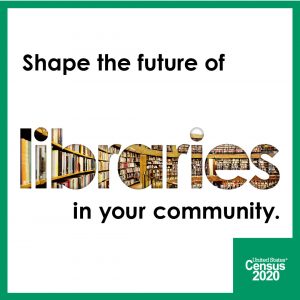Want to know the response rate for Hinds County? Continue reading to view an interactive map.
From the American Library Association:
The census, conducted once every 10 years, is the constitutionally-required count of every person living in the United States. It’s a huge and complex endeavor, one with an enormous impact on all our communities. The 2020 Census will be the first to urge most households to respond online, but people will also have the option of responding by phone or paper questionnaire.
The decennial census form asks questions about all the people who live and sleep in a household most of the time—including babies and anyone who has no other permanent place to stay and is staying in the household—as of April 1, 2020. The census form should take about 10 minutes to complete, depending on the number of people in the household.
Census data are used to make decisions about how and where to spend more than $1.5 trillion each year for programs and services that communities rely on. Census data also drive federal funding allocations for libraries, including grants to states under the Library Services and Technology Act. The census population count is used to determine representation in Congress (known as reapportionment) and the Electoral College. Simply put, communities that are undercounted are disadvantaged economically and politically.
Communities also use census data for planning purposes. For example, local school districts may not be able to plan effectively for changing needs if large numbers of young children are not counted, as has been the case in previous censuses. Census data help local leaders make planning decisions about where libraries should be located, whether they should expand, and what kinds of services should be offered based on the characteristics of the community.
We only have one shot every 10 years to get the census right. If we don’t, undercounted groups won’t get the appropriate level of funding for programs needed in their neighborhoods, and local leaders and officials won’t have the reliable information they need to make decisions.
Libraries are uniquely positioned to help ensure that communities across the country are accurately counted. Our institutions are trusted and welcoming hubs of public life, and librarians are respected members of their communities. We can play an important role in outreach to groups often missed by the census—like people experiencing homelessness, young people and children, people of color, people with low incomes, recent immigrants, and those who live in rural or remote areas. Libraries are great places for people to fill out the census form online—especially those who lack internet access at home or on their phones—and get accurate information about the census.
